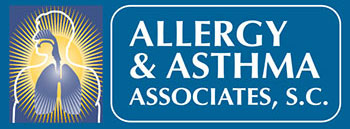Remember that movie Hitch that came out about ten years ago? In the movie, the title character accidentally eats a food he is allergic to and his face swells to a ridiculous size. The scene is on Youtube here.
While the trope is used for comedic effect in this film, very little is funny about food allergies to people that suffer. An estimated 150 people a year die from allergic reaction to “off-limits” food that you or I might be able to enjoy without so much as a tummy gurgle.
For some of us, the portrayal of food allergies in movies and TV might be all we know about this unpleasant reactivity. Both food allergies and food intolerances can add frustrating layers of complication to the lives of people who suffer from them.
Download the PDF!
Allergy or Intolerance Allergy and Asthma
Food Allergies vs Food Intolerances
Because the two terms are sometimes used interchangeably, it is easy to confuse them. You may be getting Tapas with a friend when she exclaims that she has to go easy on the fish tacos because if she eats more than one she is allergic and will feel nauseous.
In reality, she may just have an intolerance. Unpleasant reactions to certain foods are actually quite common for people. Almost all of us have one or two foods that if we aren’t careful when we eat, we know we’re in for a bad time.
Food intolerance – Occurs when your body can’t properly digest certain foods. You can have an intolerance for almost any food or food group, but these are some of the most common forms of food intolerance:
- Lactose intolerance
- Gluten intolerance
- Seafood intolerance
There are others, of course, but typically an intolerance is recognized by localized symptoms, which may include:
- Nausea
- Diarrhea
- Heartburn
- Headaches
In most cases these symptoms, though uncomfortable, are non life-threatening. You may experience different symptoms than these, but as long as they are local, it is likely your aversion is an intolerance.
Treatment for a food intolerance consists of either avoiding the food or limiting the food. In some cases (like lactose intolerance), there are medicines you can take to assist digestion which provide the missing enzymes.
Depending on the severity of your individual symptoms and the amount of food it takes to onset them, sufferers of food intolerance can sometimes eat small amounts of the affected food without experiencing a break out.
Food allergy – Occurs when your body’s immune system incorrectly identifies a food as a foreign pathogen and activates threat level red on the mistaken intruder with a range of painful and life-threatening symptoms.
Although food allergies can come in many different forms, some of the most common are:
- Seafood
- Peanuts
- Soy
Like food intolerances, almost any food can be the source of a food allergy. Unlike food intolerances, however, the symptoms of a food allergy and much more serious and even life-threatening. Some of these symptoms include:
- Respiratory shortness – airway closure and breathing problems
- Hives
- Severe chest pain
- Seizures
Symptoms can be similar as well to food intolerances including digestive problems or headaches, but typically the onset is immediate after coming in contact with the allergenic food (or in some cases, food prepared in the same environment as the allergenic food).
Due to the life-threatening nature of allergic food’s symptoms, consumption must be avoided at all costs. Many states require restaurants to notify patrons of environments where commonly-allergenic food is prepared (for instance peanuts or seafood).
Diagnosis
If you believe that you are affected by one of these food-related conditions, your allergist may ask to keep a food diary documenting everything you eat and record when symptoms arise.
Due to the immediate and sometimes violent nature of food allergies, most people are diagnosed very early in their lives, yet you may still be allergic to something and just experience more mild symptoms.
Once diagnosed, an allergist is able to recommend treatment options that may include medication (digestive enzymes), or more advanced forms of treatment.
Remember, a food allergy or intolerance may seem like quite the roadblock, but almost all are treatable or avoidable. Any food allergy is possible to live with!
Contact us if you have any questions about food allergy or food intolerance.



